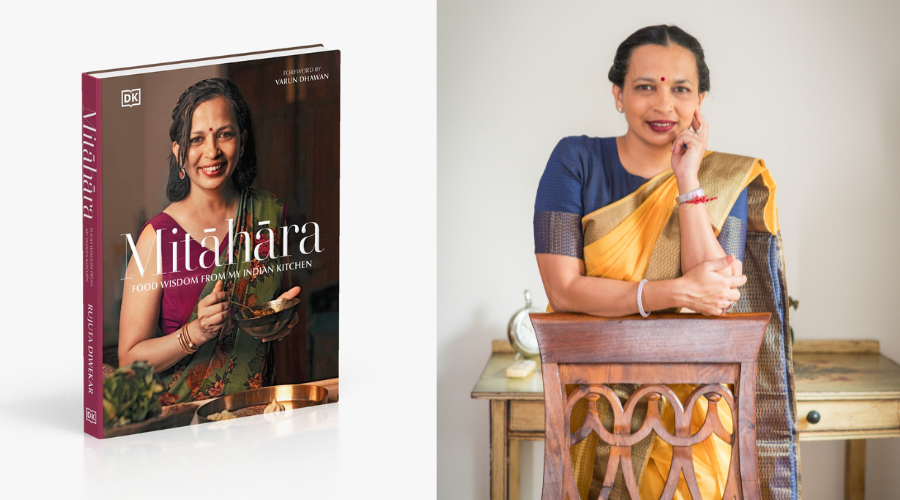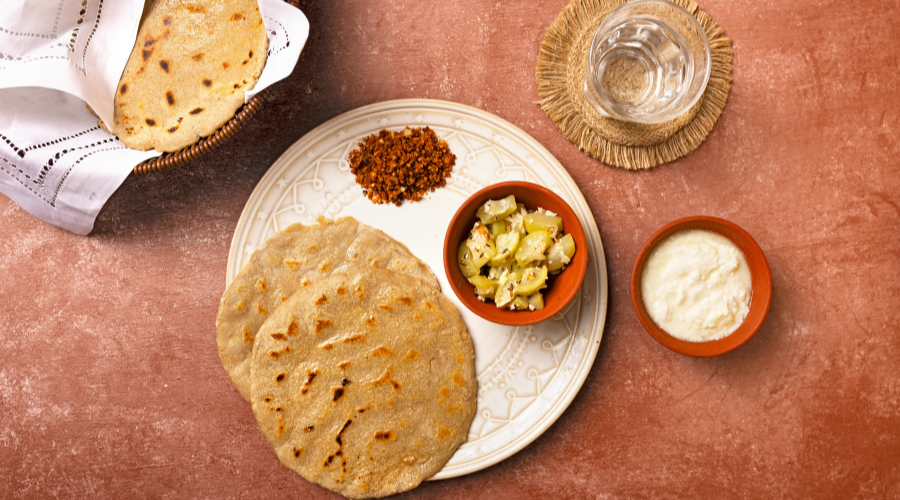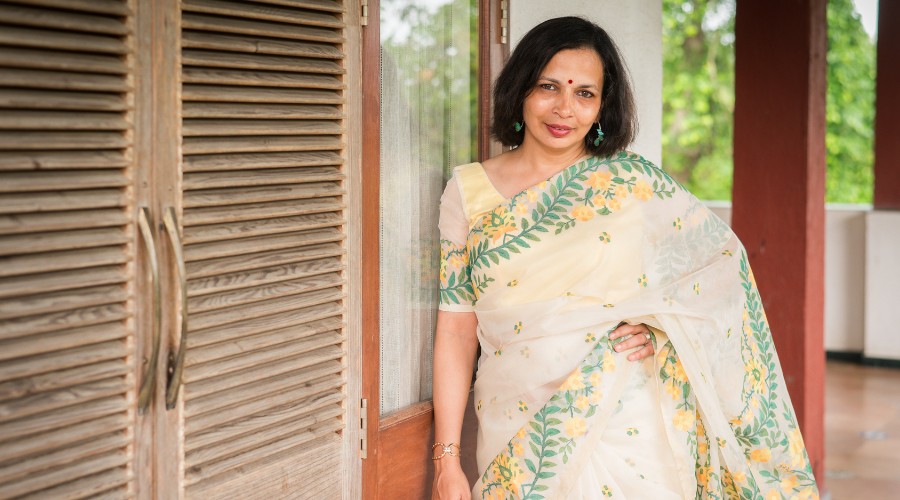“Cooking is like love. Like how love must touch everyone’s life for them to know how it can enhance it, cooking is the same,” said author, celebrity nutritionist, and public health advocate Rujuta Diwekar, in an exclusive chat with Outlook Traveller Eats. Her books have sold over 1.5 million copies and have been translated into 7 languages. Her recent release, Mitahara: Recipes from an Indian Kitchen (published by Dorling Kindersley), is a seasonal guide to home-cooked food.
As a book that emphasises seasonal eating, it is divided into four sections— winter, summer, monsoon, and autumn/spring (changing seasons).
It offers a range of recipes and ingredients that are suited for and must be prepared in a specific season. “Eating according to seasons not only breaks the monotony on your plate, but adds freshness and diversity to your diet, along with allowing you to celebrate every season,” said Diweakar.

After having leafed through each page of the book, I can tell you that it is not your expected guidebook to weight loss but “a book that will help you to eat for love, to nurture yourself, and develop a sense of belonging,” as Diwekar wrote in the book. With this intent, she embarked on writing her first-ever recipe book.
Mitahara’s Journey
Soon after delivering one of her bestsellers, Don’t Lose Your Mind, Lose Your Weight, Diwekar was offered and expected to write a recipe book in 2009. “I was not actively cooking at the time. Neither did I want to tell people how they should eat to lose weight, nor did I want to do an injustice to our country’s culinary diversity,” said Diwekar.
She only started cooking consistently during the pandemic when she also fell in love with being in the kitchen and cooking as a craft. “During COVID months, I realised that cooking is similar to learning how to ride a bicycle. Once you get a hang of it, cooking and riding a bicycle become the most liberating, exhilarating, and joyful activities— as smooth as a shrikhand puri,” said Diwekar.
During this time, she also got rid of her prejudices against cooking, which is laborious, ties women to kitchens, and disallows them to venture out of their homes. “Cooking is a form of self-love and care,” added Diwekar.
The Power Of Seasonal Eating And Cooking
“When you eat dishes made using seasonal ingredients, you somehow accept nature’s evolution and the unpredictability of life. Summers become bearable when accompanied by aam ras, and winters become less harsh when paired with chewy til gul,” said Diwekar.
While there is an increased inclination towards avocado toast, blueberry yoghurt, and good bacteria food, the lost art of seasonal ingredients has led all of us to consume the same kind of food. “This has led us to look like poor copies of each other with our individuality lost,” added Diwekar.
She also mentioned how consuming seasonal ingredients can help reduce climate change individually. “If you are eating dishes made from ingredients growing around you, you are reducing the distance that those ingredients have to traverse before they land in your kitchens and on your plates,” said Diwekar.

Not just for oneself or the environment, eating according to seasons also keeps the richness of one’s culture alive. “In India, our diversity is our strength. The culinary richness of the country is such that the cuisine changes every 10 miles. Each cuisine has its ingredients that must be preserved to safeguard the cuisine,” said Diwekar. In the book, she mentions some ingredients like water chestnut, imli, kokum, and shakarkandi (sweet potato) that are losing their presence and must be preserved.
With over 45 recipes, the book celebrates food, seasons, and India’s rich culinary diversity. From a winter recipe for bajra raab to a refreshing variyali sherbet for summers, the book can serve as a single stop if you wish to cook according to seasons.
Tips For Novice Chefs
Diwekar spoke passionately about the kitchen and saw the space as a haven that must reflect your personality more than your drawing room or living room should. “I am a fifth-generation working woman in my family. Every woman in our family has evolved the kitchen in a way that nurtures their ambition and creates a balance between their personal and professional life,” said Diwekar.
For anyone who is intimidated by cooking as a process or considers it something that is laborious, time consuming, and meant only for the women to do, Diwekar said,” It is a life skill. A clean kitchen, with separate knives for garlic and onion. The will to cook consistently is the recipe for a good gut, good skin, promising career, and a good life,” concluded Diwekar.









